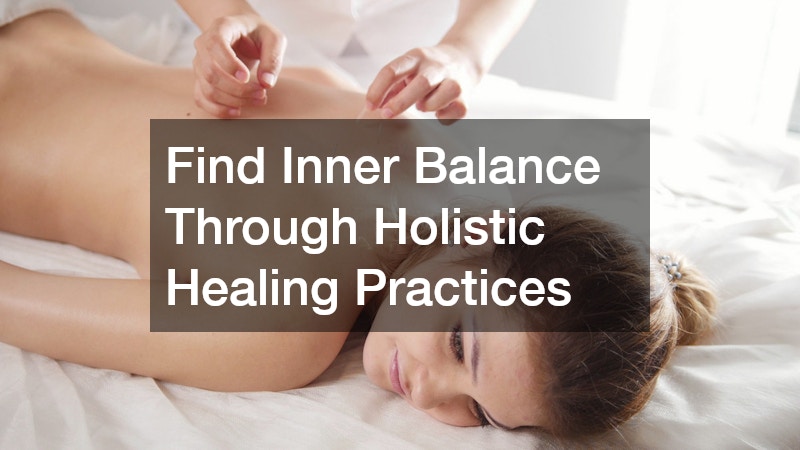Parenting is one of the most rewarding journeys in life—but it’s also one of the most demanding. Between school runs, work deadlines, extracurricular activities, and the endless to-do list that never seems to shrink, it’s easy for parents to lose themselves in the daily whirlwind. Yet, prioritizing your own well-being isn’t selfish—it’s essential. You can’t pour from an empty cup, and your family benefits most when you’re rested, balanced, and fulfilled. This is where the concept of parent self care becomes more than a luxury; it’s a necessity.
Whether you’re raising toddlers, navigating teen years, or managing life as a new empty nester, finding ways to restore your energy and rekindle your joy can dramatically improve your mental and emotional health. Below, you’ll find practical and rejuvenating strategies designed to help parents reconnect with themselves, rediscover their passions, and cultivate peace amidst the chaos.

1. Reclaiming Your Energy Through Rest and Routine
The first step in any parent self care journey is learning to prioritize rest. Many parents overlook the power of consistent sleep and restorative downtime, mistakenly viewing relaxation as indulgent rather than necessary. Yet, just like nutrition or exercise, sleep forms the foundation for energy, patience, and focus.
Creating a routine centered on rest isn’t about finding huge chunks of time—it’s about establishing rhythms that support calm and consistency. Start by designing a bedtime routine that mirrors the ones you create for your kids: dim the lights, unplug from screens an hour before bed, and allow your body to unwind naturally. Even a brief moment of mindfulness before sleep can dramatically improve your quality of rest.
Incorporate micro-rest breaks throughout the day, too. A ten-minute walk, a quiet coffee in the morning sun, or a short breathing exercise between errands can reset your nervous system and keep you centered. Rest is not a reward; it’s a right. Over time, you’ll begin to notice how regular rest amplifies your emotional resilience, helping you navigate the unpredictable terrain of parenting with more grace and clarity.
Beyond the basics, consider scheduling days where you deliberately do less. Designate one weekend morning each week to slow down—no errands, no cleaning, no commitments. Use that time for reflection, journaling, or simply sitting in silence. These small but sacred pauses allow your body and mind to recalibrate, making you more available and attentive to both your family and yourself.
2. Reconnect With Your Body Through Wellness and Care
In the hustle of family life, physical well-being often takes a backseat. Yet, nurturing your body is a cornerstone of parent self care. Tending to your physical needs not only boosts your energy but also sends a powerful message to your children about self-respect and longevity.
A visit to the best med spa can serve as a rejuvenating escape—a space where stress melts away, muscles release tension, and skin feels renewed. Whether you indulge in a facial, a massage, or a restorative skin treatment, this kind of care reminds you that your body deserves as much attention as your schedule. It’s not vanity—it’s vitality.
Beyond pampering, explore movement that brings you joy. Yoga, dance, swimming, or simple stretching can help release physical tension and elevate your mood. The key is to select activities that feel restorative rather than obligatory. Instead of forcing yourself into a high-intensity workout, choose what energizes and aligns with your lifestyle.
If time feels limited, remember that small movements matter. A 15-minute yoga flow before bed, a short walk around the block after dinner, or even dancing in the kitchen with your kids counts as meaningful movement. These moments of reconnection strengthen not only your body but also your sense of presence and playfulness.
The more you care for your physical health, the more attuned you become to your body’s signals. That awareness becomes the foundation for better balance, reduced burnout, and deeper appreciation for the body that carries you through the chaos and beauty of parenting.

3. Find Inner Balance Through Holistic Healing Practices
Sometimes, physical rest isn’t enough—our energy drains from deeper emotional or mental fatigue. This is where holistic wellness approaches can help replenish your spirit. Incorporating alternative therapies into your parent self care routine can address stress at its root, fostering both calm and clarity.
For example, acupuncture offers a centuries-old method for restoring the flow of energy, alleviating tension, and calming the nervous system. By targeting specific points on the body, acupuncture can help reduce anxiety, ease headaches, and improve sleep—all common struggles among parents juggling multiple responsibilities. Many parents find it’s not just about physical relief but also about creating a meditative space to pause and breathe.
Other holistic approaches—such as aromatherapy, breathwork, or guided meditation—can be integrated into your home environment. Create a small sanctuary where you can retreat, even if only for ten minutes. Light a candle, play soft music, and allow your mind to rest. This sacred space signals to your body that you are safe and deserving of peace.
By embracing holistic healing, you move beyond surface-level relaxation and dive into true restoration. The goal is not perfection or constant calm, but rather resilience—the ability to meet life’s demands with presence, patience, and perspective.
4. Embrace Confidence Through Mindful Aesthetic Choices
Part of reclaiming joy in your parent self care journey is feeling good in your own skin. When you look in the mirror and feel confident, that positivity radiates into your interactions, your parenting, and your overall mood. Taking small steps to refresh your appearance can create a surprising ripple effect of self-assurance.
Consider treatments like body contouring if you’re looking to feel more aligned with your wellness goals after pregnancy or lifestyle changes. These non-invasive options can help you reconnect with your body in a way that feels empowering rather than superficial. The intention isn’t to chase perfection—it’s to celebrate progress.
Similarly, simple updates to your wardrobe or hairstyle can reignite your sense of identity. Many parents lose touch with their personal style amidst diaper bags and sports uniforms. Try setting aside time each season to curate outfits that reflect who you are today—not just who you were before children.
Confidence also stems from mindfulness. Instead of scrutinizing flaws, practice gratitude for what your body has accomplished. Whether it’s carrying a child, navigating sleepless nights, or juggling countless demands, your body has been your partner through it all. Embracing aesthetic self-care becomes an act of honoring that partnership, not rejecting it.
When you show up for yourself in visible ways, you subconsciously remind your mind and body that you matter—that your needs, beauty, and comfort are valid priorities. Over time, this renewed confidence will naturally enhance every area of your life.

5. Elevate Your Smile, Elevate Your Spirit
A genuine smile is one of the most powerful reflections of inner joy, and it can transform not only how you feel but also how you connect with others. However, many parents put dental care on hold while focusing on their children’s appointments and needs. Incorporating oral health into your parent self care plan is a small yet impactful step toward self-confidence and long-term wellness.
For example, invisalign offers a discreet way to enhance alignment without interrupting your daily routine. Many adults appreciate the flexibility it provides—no wires, no metal brackets, just gradual, nearly invisible progress. Alongside teeth straightening, treatments such as whitening or regular cleanings can refresh your look and boost self-esteem.
If you’re missing teeth due to past dental issues, dental implants offer a permanent, natural-looking solution that restores both function and aesthetics. With today’s technology, implants are designed to integrate seamlessly, giving you back the confidence to laugh, speak, and smile freely.
Most general dentist offices now provide comprehensive care that caters to busy adults, offering convenient scheduling, family-friendly environments, and preventive education. Prioritizing dental health is more than cosmetic—it’s linked to heart health, digestion, and overall longevity.
By investing in your smile, you’re making a statement to yourself and your children: your well-being matters. Every time you flash that confident grin, you’re reinforcing a cycle of positivity, joy, and self-worth that ripples throughout your household.
6. Simplify Beauty and Self-Maintenance
When you’re constantly juggling family, work, and personal commitments, finding time for beauty routines can feel impossible. Yet, simplifying self-maintenance can become a cornerstone of parent self care. Instead of neglecting your needs, look for efficient solutions that make you feel refreshed and polished without consuming hours of your time.
For instance, laser hair removal provides a long-term way to reduce grooming stress. By eliminating the need for frequent shaving or waxing, you free up both mental and physical energy for more meaningful activities. This streamlined approach to beauty not only saves time but also boosts confidence.
Small, intentional upgrades—like switching to low-maintenance hairstyles, scheduling recurring salon appointments, or organizing a minimalist skincare routine—can help you feel consistently put together with minimal effort. The goal isn’t perfection; it’s simplicity and sustainability.
Equally important is reframing self-care as maintenance rather than indulgence. Just as you schedule oil changes or doctor visits, personal upkeep deserves a place on the calendar. Treat these appointments as non-negotiable—after all, showing up for yourself ensures you can show up better for your family.
When you feel comfortable in your skin, your energy shifts. You walk taller, speak kinder, and engage more openly with the world—beauty routines, when simplified and intentional, serve as small yet powerful acts of self-respect and replenishment.
7. Healing from the Inside Out
Mental and emotional exhaustion can’t always be solved through surface-level relaxation. Sometimes, deeper healing is needed. Seeking professional support or exploring alternative therapies is one of the most courageous forms of parent self care—an acknowledgment that your inner world deserves as much attention as your outer responsibilities.
One emerging option is local ketamine therapy, a treatment gaining recognition for its ability to address depression, anxiety, and burnout. Administered under medical supervision, this therapy can help reset neurological pathways, offering relief for those who feel stuck in cycles of exhaustion or emotional flatness. For parents struggling with chronic stress or mood imbalances, it can be a valuable addition to a broader care plan.
Of course, therapy in any form—whether traditional talk therapy, cognitive-behavioral approaches, or mindfulness-based counseling—can be transformative. It provides a space to unpack emotions, reframe self-expectations, and develop strategies for sustainable balance.
Healing from the inside out also involves nurturing joy. Reconnect with hobbies, music, or creative pursuits that once brought you happiness. Schedule regular time for laughter, community, and personal growth. The more you nurture your inner life, the more grounded and resilient you become.
Ultimately, self-healing is not about fixing what’s broken—it’s about remembering who you are beneath the noise. When you prioritize mental and emotional well-being, you rediscover your capacity for compassion, patience, and play—the very qualities that make parenting a joy.
8. Restore Strength and Ease Physical Discomfort
Physical pain can silently drain energy, leaving you short-tempered and fatigued. Addressing discomfort is a vital component of parent self care, as chronic tension or soreness often reflects the toll of daily demands—lifting toddlers, sitting at desks, or bending into car seats.
Seeking back pain treatment can dramatically improve your quality of life. Whether through chiropractic care, physical therapy, or therapeutic massage, relieving musculoskeletal stress restores both function and vitality. When your body feels good, everything else feels more manageable.
In addition to professional care, integrate gentle daily stretches or ergonomic adjustments at home. A supportive chair, a standing desk, or posture-correcting exercises can reduce strain and prevent future issues. Movement, when approached mindfully, becomes medicine.
Remember that pain—whether physical or emotional—is information, not inconvenience. Ignoring discomfort often amplifies it, while addressing it invites healing. By treating your body with the same care you offer your children, you build a foundation for lasting health and harmony.
The path to reclaiming energy and joy begins with listening—to your body, your emotions, and your inner wisdom. Every small act of care is a step toward wholeness.
Reclaiming Joy, Redefining Balance
Parenthood will always come with its fair share of challenges, but that doesn’t mean depletion must be the norm. Through intentional parent self care, you can reclaim energy, confidence, and calm—creating a life that nourishes both you and your loved ones. The goal isn’t to escape your responsibilities, but to approach them with renewed strength and serenity.
Whether it’s through holistic practices, physical wellness, or emotional healing, each strategy you adopt becomes a building block of resilience. When you honor your needs, you model self-respect for your children. You teach them that love includes care for others and for oneself.
Parenting isn’t about perfection—it’s about presence. And the more you nurture your own joy, the more you can share it. Because when you thrive, your family thrives, too.



